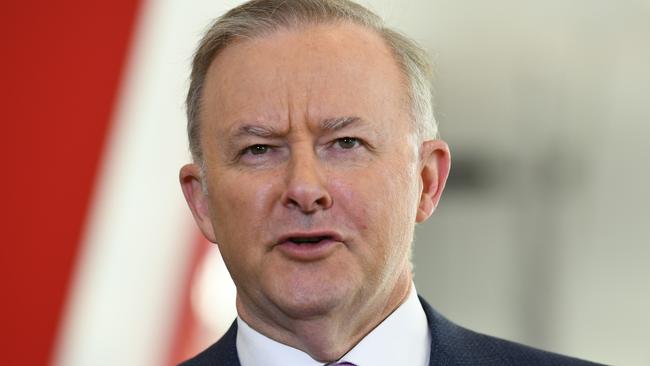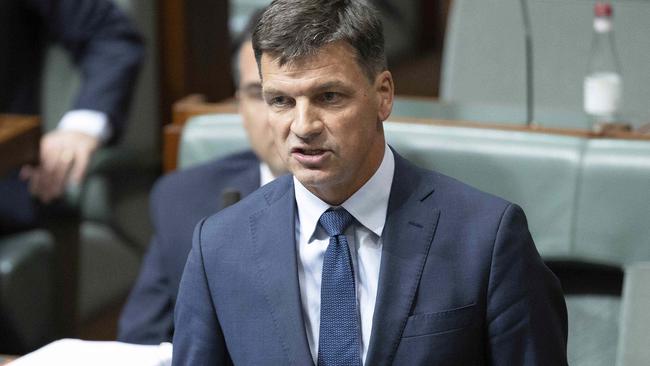Tom Minear: Time to get in the right lane on electric vehicles
Australia is stuck in first gear as the rest of the world accelerates the transition to electric vehicles.
Opinion
Don't miss out on the headlines from Opinion. Followed categories will be added to My News.
Bill Shorten wants to end the weekend.
It was one of the defining lines of the last election, as Scott Morrison bleated about Labor’s target for electric vehicles to make up half of all new cars sold by 2030.
“He wants to say ‘see ya later’ to the SUV,” the PM complained.
His colleague Michaelia Cash followed up by declaring: “We are going to stand by our tradies and we are going to save their utes.”
It was shameless and silly.
Two years on, that rhetoric still seems to be ringing in the ears of MPs on both sides of politics — and it means Australia is stuck in first gear as the rest of the world accelerates the transition to electric vehicles.
Last year, there were 6900 sold in Australia, just 0.7 per cent of all new car sales compared to 11 per cent in the UK and Europe. By the end of the decade, countries including the UK, Japan and France will have banned the sale of petrol and diesel vehicles, and Ford and General Motors will only sell electric cars in Europe.
If Shorten had been elected, his target would now look rather conservative by comparison. Under Morrison, Australia doesn’t have a long-term ambition, although modelling produced by his government predicts a quarter of all cars purchased by 2030 will be electric.
On Wednesday, Shorten’s successor Anthony Albanese walked away from setting targets, and instead vowed to cut taxes on new electric cars worth up to $77,565.

Politically, it’s clever. Having accused Labor of forcing motorists to buy unaffordable vehicles, Morrison can hardly complain about Albanese promising to drive prices down. Cost has long been a major obstacle in the transition, with just five electric models currently available here under $60,000. If Labor is elected, someone buying a $50,000 electric car through salary packaging could save as much as $11,000.
Importantly, by targeting tax cuts at cheaper models, Labor is sending a signal to manufacturers to import more affordable electric vehicles, not expensive luxury options.
The government rightly points out the “cost of ownership gap” between petrol and electric cars remains too high, at up to $8000, but price parity is expected within five years. And for families who can already afford the extra upfront costs, there are savings to be had.
Former chief scientist Alan Finkel, in his new Quarterly Essay, says the average two-car metropolitan household could save two-thirds of their annual $4000 petrol bill by switching to electric cars. If they had rooftop solar as well, that bill would almost completely disappear.
Finkel argues Morrison’s two-year-old concerns about electric vehicles — that they are unsuitable for towing and cannot travel far enough — have been nullified by improved battery technologies. And as a Tesla driver, he says they’re much better to drive.
“Going back to a petrol internal combustion car after having driven a battery electric car would be like going back to watching a box television set after having become used to large-format flat-screen televisions,” he says.
Globally, the transition to electric vehicles is happening. The transport sector is responsible for 18 per cent of Australia’s carbon emissions, so it will happen here too. But as is the case with emissions reduction policy more broadly, a co-ordinated national approach is required.
Emissions Reduction Minister Angus Taylor is focused on taxpayer support for charging stations for companies which electrify their fleet cars. This makes sense, given businesses account for 40 per cent of new light vehicle sales, and because regular fleet upgrades would then create a cheaper second-hand electric car market.

But his long-awaited “future fuels strategy” remains a discussion paper, and it does not provide the certainty that both the automotive industry and consumers need.
A take-up target is not necessarily required. A better option would perhaps be tougher vehicle emissions standards, which would incentivise the market to shift to cleaner technology, including electric as well as hybrid and hydrogen-powered vehicles, although politicians have been loath to support anything that can be decried as a “car-bon tax”.
Of course, when it comes to taxes, the far bigger problem, which neither the federal government nor opposition seem to have any interest confronting, is what happens when electric cars inevitably wipe out the $17bn a year the Feds receive in fuel excise.
For years, politicians have resisted road user pricing, an idea beloved by economists to replace fuel excise and other fees like car registration with charges based on the distance travelled by motorists.
The Victorian and South Australian governments are now instituting per-kilometre taxes on electric vehicles. To make this work, given criticism that they are discouraging motorists from switching, they will likely offer incentives or discounts on other car costs.
It is effectively road user pricing by stealth. The commonwealth should intervene, to limit messy differences across state borders, but mostly because it should want to avoid being left without any revenue by the time the rivers of fuel excise gold dry up.
No money to maintain roads? In some areas, that might actually end the weekend.
Tom Minear is Herald Sun national politics editor



